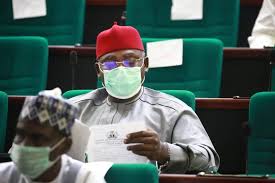There are no products in your shopping cart.
| 0 Items | £0.00 |


NIGERIA'S House of Representatives has initiated moves to stop the country from signing what lawmakers have described as obnoxious loan agreements as part of a move to address the ballooning public debt and the growing inability of the government to service these debts.
According to a World Bank report published earlier this year, Nigeria will be spending as much as 75% of her annual revenue on debt servicing by 2024. At the moment, Nigeria spends about $1.4bn out of its annual budget servicing debts, taking away money from key sectors like health and education.
With the economic meltdown as a result of the coronavirus pandemic, Nigeria's economy is facing a severe crisis as oil prices have crashed and demand is also very low. Unable to fund its 2020 budget, Nigeria approached the International Monetary Fund, the World Bank and the African Development Bank for loans that totalled about $10bn.
Most of the loans Nigeria acquired do not repay themselves over stipulated periods of time and they do not come with a caveat that production of the goods and services for which they were sought must take place in the country. Fearful of what this spells for the future, the House of Representatives noted that such pacts tend to enslave the country or compel Nigeria to forfeit its sovereignty.
Lawmakers said loan agreements must be in line with democratic principles, as contained in the 1999 constitution. As a result, yesterday, they unanimously passed, for second reading, a Bill to Repeal the Treaties Making Procedure Act of 2004, which the House said was in conflict with the constitution.
This bill, sponsored by the House Committee on Treaties and Protocols, chaired by Hon Ossai Nicholas Ossai, said the principal act was enacted on January 21, 1993 and called Decree 16 during the military era, long before the 1999 constitution became effective. Hon Ossai said that this meant that the act is obsolete and needs urgent review and a total overhaul for it to be in conformity with the Nigerian constitution with regards to Treaties Making Procedure and Implementation.